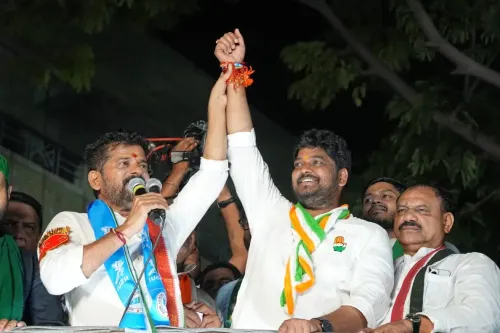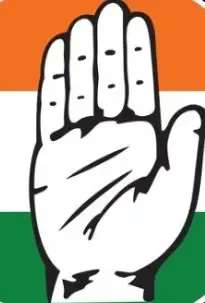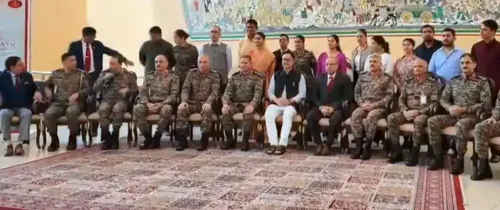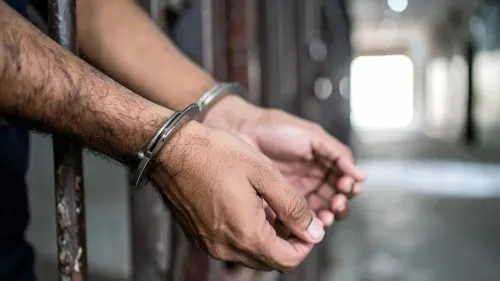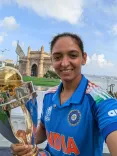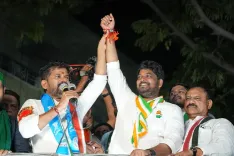Congress Criticizes UP Police's Namaz Policy, Accuses Government of Fostering Hatred Against Muslims
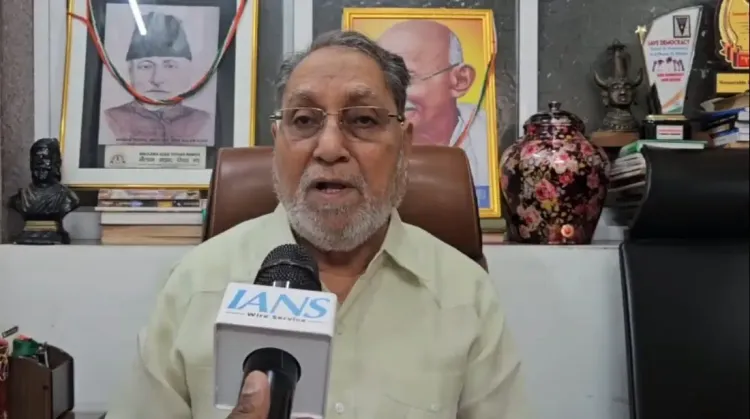
Synopsis
Key Takeaways
- Uttar Pradesh Police's strict stance on 'namaz' during Eid.
- Legal consequences for praying on public roads.
- Criticism from Husain Dalwai highlighting discrimination against Muslims.
- Call for Prime Minister Modi to address the issue.
- Protests against the Waqf Bill gaining momentum.
Mumbai, March 28 (NationPress) Senior Maharashtra Congress leader and former Member of Parliament, Husain Dalwai, vehemently condemned the Uttar Pradesh (UP) government for its rigid approach towards 'namaz (prayers)' during Eid-ul-Fitr, asserting that it signifies a deep-seated animosity towards Muslims.
This uproar is a result of the Uttar Pradesh Police's decision to enforce strict regulations regarding communal 'namaz' during Eid.
Specifically, Meerut Police have declared that offering 'namaz' on public roadways will be prohibited this year. Individuals found praying on the streets will face legal repercussions, including the filing of an FIR and the potential revocation of their passports and driving licenses.
In a statement to IANS, Husain Dalwai remarked, "On Eid, Muslims customarily visit mosques to perform 'namaz', but due to space constraints, many pray on roads. I want to pose the question, are only Muslims praying on the roads? During the Maha Kumbh Mela, roads were entirely congested as people assembled in large numbers.
"Likewise, with the approaching Navratri, crowds will swarm the streets to visit pandals. Why is it deemed inappropriate when Muslims pray on the streets? The manner in which Muslims are being singled out is unjust, and it reveals profound hatred. The RSS has ingrained this animosity in people's minds."
Dalwai also urged Prime Minister Narendra Modi to step in, advising him to speak with Chief Minister Yogi Adityanath and counsel him against meddling in religious affairs.
He stated, "The propagation of hatred, particularly amid the ongoing Aurangzeb controversy, is concerning. There should be a greater emphasis on development and a reduction in divisive tactics. Politics surrounding sensitive religious topics like Aurangzeb and cows must cease."
Furthermore, Dalwai appealed to Prime Minister Modi to halt any amendments to the Waqf Bill, which has ignited considerable controversy nationwide.
"Every religion has its own trusts or boards. Why target the Muslim community in this fashion? Muslims have contributed their funds and land for charitable purposes, aiding those in need. Involving non-Muslims in the Waqf Board is inappropriate and undermines the intent of these donations," he stated.
Meanwhile, the All India Muslim Personal Law Board (AIMPLB) has called upon Muslims to don a black armband on their right arm during Juma prayers on the final Friday of Ramzan as a protest against the Waqf (Amendment) Bill.
Protests against the Waqf Bill erupted in Bihar on Wednesday, with political factions from throughout the state expressing support for the AIMPLB.
The 'maha dharna' in Patna was attended by Rashtriya Janata Dal (RJD) chief Lalu Prasad and his son Tejashwi Yadav, who participated in the protest advocating for the Muslim community’s position against the Bill.

